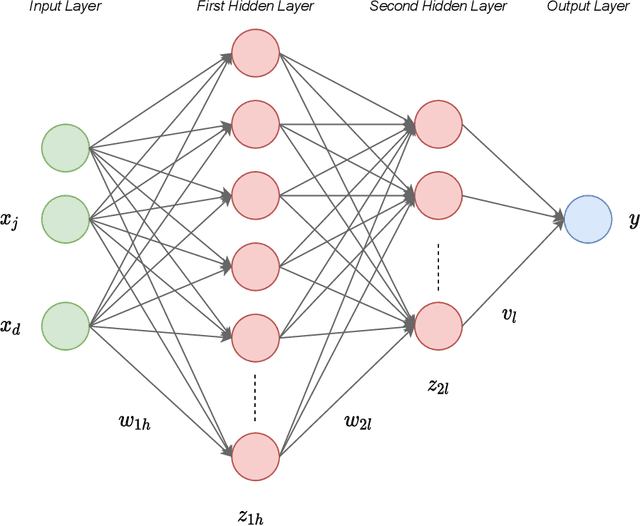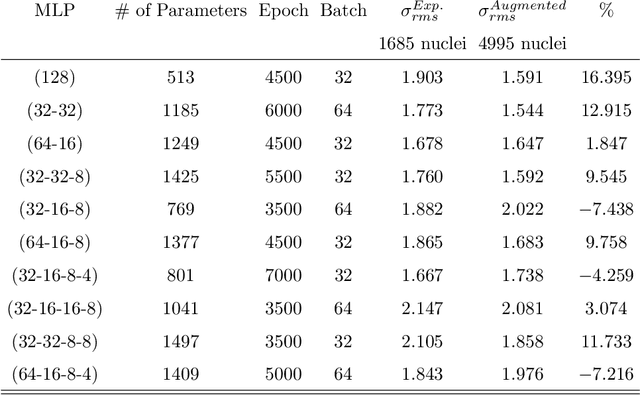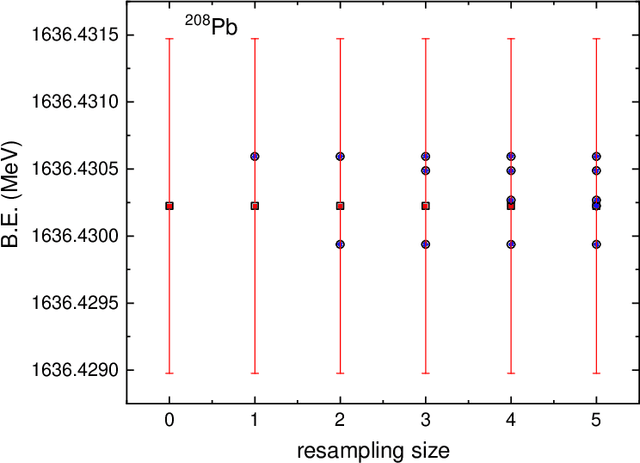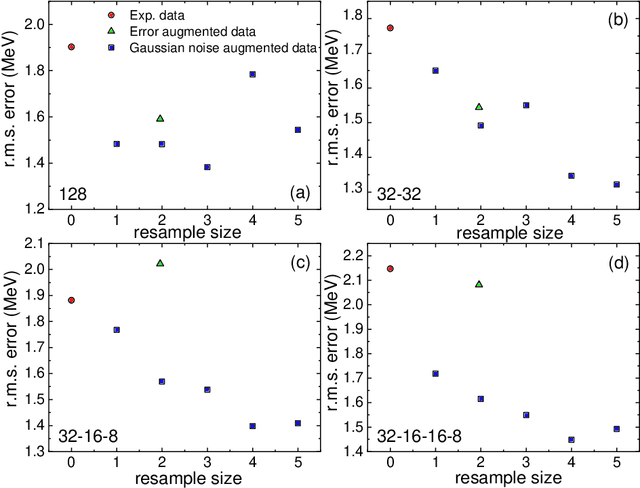Esra Yüksel
Application of multilayer perceptron with data augmentation in nuclear physics
May 16, 2022



Abstract:Neural networks have become popular in many fields of science since they serve as reliable and powerful tools. Application of the neural networks to the nuclear physics studies has also become popular in recent years because of their success in the prediction of nuclear properties. In this work, we study the effect of the data augmentation on the predictive power of the neural network models. Even though there are various data augmentation techniques used for classification tasks in the literature, this area is still very limited for regression problems. As predicting the binding energies is statistically defined as a regression problem, in addition to using data augmentation for nuclear physics, this study contributes to this field for regression in general. Using the experimental uncertainties for data augmentation, the size of training data set is artificially boosted and the changes in the root-mean-square error between the model predictions on test set and the experimental data are investigated. As far as we know, this is the first time that data augmentation techniques have been implemented for nuclear physics research. Our results show that the data augmentation decreases the prediction errors, stabilizes the model and prevents overfitting. The extrapolation capabilities of the MLP models with different depths are also tested for newly measured nuclei in AME2020 mass table.
 Add to Chrome
Add to Chrome Add to Firefox
Add to Firefox Add to Edge
Add to Edge